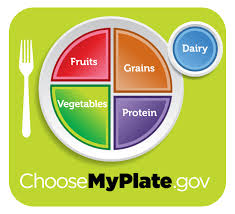7 Effective Stress-Busting Techniques for Salespeople
 Dan Sincavage, a Co-Founder of Tenfold and current Chief Strategy Officer shared with Healthy Lombard the following article:
Dan Sincavage, a Co-Founder of Tenfold and current Chief Strategy Officer shared with Healthy Lombard the following article:
Your alarm clock goes off for the nth time this morning. Snooze button abused.
You’re late for work — so you miss breakfast and grab a coffee on the way – which, of course, you spill on your suit.
Arrive at the office, sit down and start calling customers who just aren’t too enthusiastic about your company’s offer. You try your best to strike up new leads, do everything you can to keep the sale on the line, and then all of a sudden, the client decides to go to your biggest competitor instead. You keep on going, mindful of the weekly, monthly and yearly quotas that you need to meet to keep your family well-provided for.
If you’re a sales professional, chances are you’ve experienced this scenario at least once in your career. While salespeople are often expected to be lively and energetic at all times, the long hours, the growing list of responsibilities and the pressure to meet quotas can all add up and take its toll.
In fact, sales professionals are considered by some experts as highly overworked.
“As technology automates much of the function, there is simply no need for a human interface,” said Roy, a career coach and author of The Wall Street Professional’s Survival Guide. “Since the products are now not much more than commodities, salespeople are seeing shrinking spreads and fewer opportunities to generate rich commissions.”
More stress= less sales?
We all know that too much stress is bad. It can make us overeat, sleep too much or too little, lose focus, and if left untreated can lead to diseases like diabetes, hypertension and other cardiovascular illnesses.
But did you know that apart from its ill-effects on your personal health, stress also has economic consequences? An article released by the Farleigh Dickinson University shows that “workplace stress costs U.S. employers an estimated $200 billion per year in absenteeism, lower productivity, staff turnover, workers’ compensation, medical insurance and other stress-related expenses.”

 According to the Centers for Disease Control and Prevention, an estimated 3.5 million people in the United States have hepatitis C. What exactly is it, and why should you care about hepatitis C? Corinna Dan, the Viral Hepatitis Policy Advisor at the HHS Office of HIV/AIDS and Infectious Disease Policy, is here to explain. Read Corinna’s interview to learn how you can get hepatitis C and whether some women are at higher risk.
According to the Centers for Disease Control and Prevention, an estimated 3.5 million people in the United States have hepatitis C. What exactly is it, and why should you care about hepatitis C? Corinna Dan, the Viral Hepatitis Policy Advisor at the HHS Office of HIV/AIDS and Infectious Disease Policy, is here to explain. Read Corinna’s interview to learn how you can get hepatitis C and whether some women are at higher risk.
 Kids ages pre-school through high school are invited to visit the Lombard Cruise Night Kids Corner Area on Saturday, August 18 from 6 – 9 PM and earn Flat Apple participation tickets for great prizes like a mini iPad, a bike, sports equipment, gift cards, etc.
Kids ages pre-school through high school are invited to visit the Lombard Cruise Night Kids Corner Area on Saturday, August 18 from 6 – 9 PM and earn Flat Apple participation tickets for great prizes like a mini iPad, a bike, sports equipment, gift cards, etc. Joshua Steckler, owner of Push Fitness, a personal training studio located in Schaumburg specializing in weight loss, muscle toning, and nutrition shared in the Daily Herald Newspaper that if you want to permanently take control of your weight, your best option may be to eat more — more often, that is.
Joshua Steckler, owner of Push Fitness, a personal training studio located in Schaumburg specializing in weight loss, muscle toning, and nutrition shared in the Daily Herald Newspaper that if you want to permanently take control of your weight, your best option may be to eat more — more often, that is. Lynn Dugan
Lynn Dugan Clare Ansberry asked in the Wall Street Journal’s Turning Point section, “Are baby boomers anti-social?”Here is her answer: Members of the baby boom generation, especially those 55 to 64 years old, are less socially engaged than people the same age 20 years ago, according to researchers at the Stanford Center on Longevity.
Clare Ansberry asked in the Wall Street Journal’s Turning Point section, “Are baby boomers anti-social?”Here is her answer: Members of the baby boom generation, especially those 55 to 64 years old, are less socially engaged than people the same age 20 years ago, according to researchers at the Stanford Center on Longevity. While kids are enjoying the long days of summer, the new school year is fast approaching.
While kids are enjoying the long days of summer, the new school year is fast approaching. Ann Davis, M.D. whose s
Ann Davis, M.D. whose s




